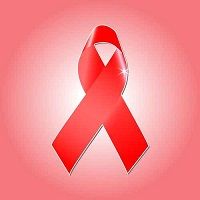Article
Researchers Track Deaths in HIV Patients Lost to Care
Author(s):
What happens to patients who walk away from care at their HIV clinic? A Pennsylvania team found which ones were most likely to die.

Pennsylvania-based researchers looked at what happened to 389 patients who were lost from care at an HIV clinic.
Ekezie Francis, MD, of the Department of Medicine and infectious Diseases at Penn State College of Medicine and the Milton S. Hershey Medical Center in Hershey, PA and colleagues found a higher death rate in patients who were oder and whose viral loas were unsuppressed at the time they were lost to care.
In the retrospective study, the team looked for characteristics of patients to find ways to predict likely outcomes when patients leave care.
“The occurrence and predictors of mortality after loss from HIV care are not well elucidated,” they noted.
Their data showed that 25% of patients who stopped coming to the clinic during the 2003 to 2012 study period had died.
The traits these patients tended to share were age 45 to 55, late diagnosis (HIV stage 3/AIDS) with unsuppressed viral load. The risk was even greater for patients over 55, but patients who were diagnosed late but had suppressed viral loads were at less risk.
Risk of death was lower in those who likely got the virus through the men-having-sex-with-men route as opposed to those who acquired it through injection drug use.
A puzzling finding was there was a greater risk of death among patients who were known to have continued their care at another place than among those who remained lost to care
.
“The higher occurrence of death associated with older age and late diagnosis with unsuppressed viral load at the time of loss from HIV care may indicate a frailty effect suggesting a need for timely screening and closer case management support,” they concluded.
The study was presented in a poster session at IDWeek 2016 Oct 27 in New Orleans, LA.
Related Coverage:
Puerto Rico’s HIV/AIDS Problem Grows as Economy Tanks
Depression Contributes to Heart Attack Risk in HIV Positive People





